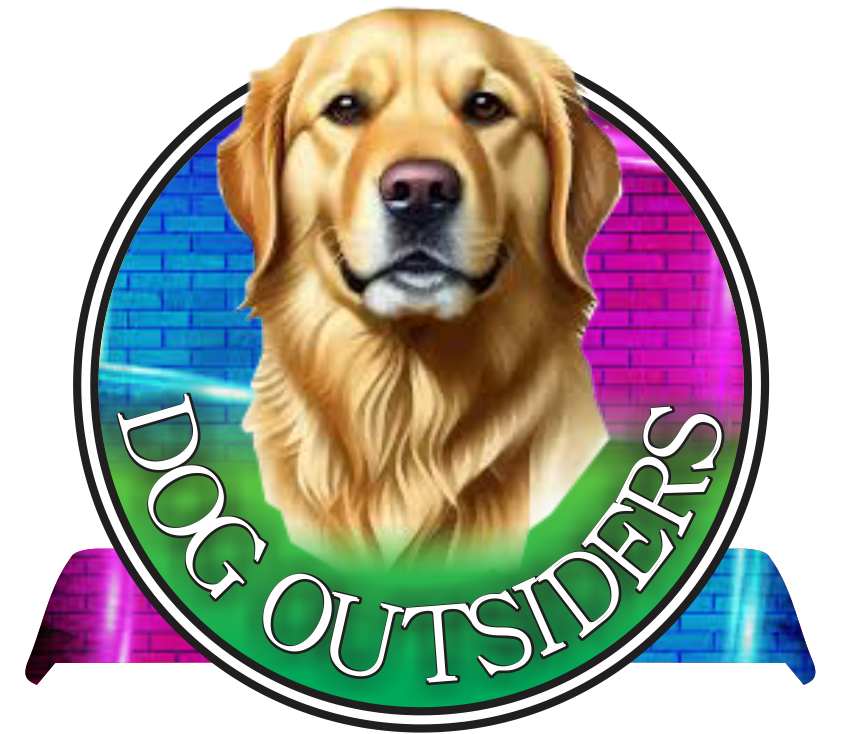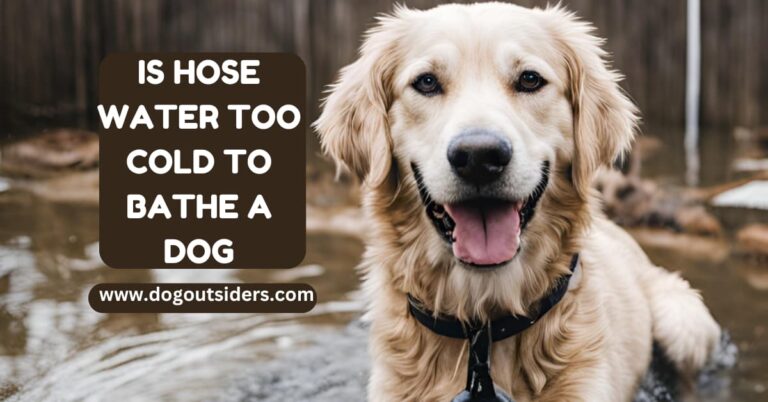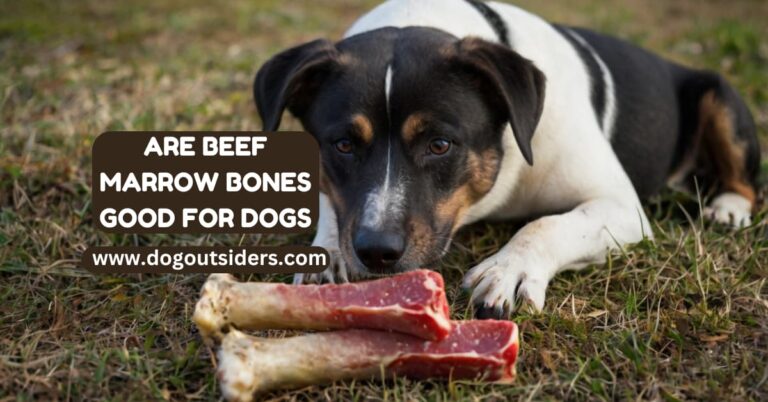Can dogs eat egg shells that are washed? This question popped into my mind when I was looking for healthy snacks for my furry friend, especially regarding feeding dogs egg shells and dog eggshells. Eggshells are packed with calcium, which is great for dogs. However, I wanted to ensure they were safe and beneficial, like raw eggshells and commercial eggshell calcium as vegan egg substitutes.
After diving into research, I discovered that washing the raw eggshells is crucial to remove any harmful bacteria, especially when using egg substitutes. I learned how to prepare them properly, including egg shells and the right serving size for my pup. Understanding the benefits and risks of raw eggshells and egg shells helped me make informed choices about my dog’s diet. If you’re curious about adding this unusual treat, like egg shells or raw eggshells, to your dog’s meals, stick around. I’ll share what I found about eggs and egg shell and how it can benefit your canine companion.
Key Takeaways
- Dogs can safely eat washed eggshells, but proper preparation is crucial to minimize risks.
- Be aware of the potential for salmonella contamination; always wash and bake the eggshells to kill harmful bacteria.
- Eggshells are a rich source of calcium, which supports your dog’s joint health and overall well-being.
- To incorporate eggshells into your dog’s diet, grind them into a fine powder for easier digestion and absorption of nutrients.
- Start with small amounts of eggs, including the egg shell, to gauge your dog’s tolerance, and consult your vet for personalized advice on serving sizes.
- Regularly check in with your veterinarian to ensure that adding eggshells aligns with your dog’s specific dietary needs.
Can Dogs Eat Eggshells Safely

Trustworthy Sources
Eggshells from trustworthy sources are generally safe for dogs. These sources include organic farms or reputable grocery stores. I prefer to use eggs from local farmers that I trust, shell included. They often provide fresher and cleaner options.
Eggshells contain calcium, which is beneficial for dogs. Calcium supports bone health and dental strength. However, not all eggshells are created equal. Eggs with a shell from unknown or questionable sources may carry harmful bacteria. Always ensure the eggs come from a reliable source.
Washing Eggshells
Washing eggshells is crucial before feeding them to dogs. This process removes contaminants such as dirt and bacteria. I always rinse my eggshells under running water. A gentle scrub can help eliminate any residue.
Contaminated eggshells can lead to gastrointestinal issues in dogs. Symptoms may include vomiting or diarrhea. To avoid these problems, proper washing is essential. Using soap is unnecessary; plain water suffices for cleaning.
Grinding for Digestibility
Grinding eggshells enhances their digestibility for dogs. Whole eggshells can be hard for dogs to break down. I recommend using a blender or food processor for this task with eggs and egg shell. Ground eggshells become a fine powder that mixes easily with dog food.
The powdered form allows for better absorption of nutrients. It also reduces the risk of choking hazards. Dogs benefit more from the calcium in eggs when the shells are ground properly.
Personal Experience
In my experience, introducing ground eggshells into my dog’s diet has been positive. My dog seems to enjoy the added texture of eggs and shell in his meals. I’ve noticed improvements in his coat and overall health since adding eggs and shell to his diet.
I keep the ground eggshells in an airtight container to maintain freshness. This way, I always have eggs on hand when needed, shell included.
Risks of Salmonella in Eggshells

Presence of Bacteria
Eggshells can harbor salmonella bacteria. This risk exists even with grocery store eggs. Salmonella can contaminate eggs during production or handling. I often wash eggs with the shell before using them, but that does not guarantee safety.
Contaminated shells and eggs pose a risk to dogs and humans alike. When dogs consume raw eggs with the shell, they may ingest these harmful bacteria. Symptoms of salmonella infection include vomiting and diarrhea. Monitoring your dog for these signs is essential after introducing any new food, such as eggs in their shell.
Cooking Effectiveness
Baking or boiling eggshells can reduce the risk of salmonella. High temperatures kill most bacteria present on the shells. I have found that baking eggs at 350°F for about 15 minutes in a shell is effective. This method ensures the eggs and shells are safe for my dog to eat.
Cooking also makes the shells easier to crush. Crushed shells and eggs provide a source of calcium, which benefits your dog’s health. However, ensure the eggs and shells are finely ground before feeding them to your pet.
Monitoring Health
After introducing eggshells into a dog’s diet, monitoring their health is crucial. Observe for any adverse reactions, such as eggs or shell, over the next few days. Changes in behavior or digestion may indicate a problem.
I always keep an eye on my dog after trying new foods like eggs, especially the shell. It helps me catch any issues early on. If you notice symptoms like lethargy or upset stomach, consult your veterinarian immediately.
Nutritional Benefits of Eggshells

Natural Calcium Source
Eggshells serve as a natural source of calcium for dogs. This mineral is vital for strong bones and teeth. A single eggshell contains about 2 grams of calcium. Many dog owners may not realize that eggs, particularly the shell, can significantly contribute to their pet’s daily calcium needs.
I have often found myself looking for ways, like adding eggs, to enhance my dog’s diet. Adding washed and powdered eggshells seemed like a practical choice. They provide an easy way to introduce more calcium from eggs without relying on commercial supplements.
Essential Nutrients
Eggshells also offer essential nutrients beyond calcium. They contain eggs, magnesium, phosphorus, and trace minerals that promote overall health. These nutrients help maintain various bodily functions in dogs.
Using eggshells can provide beneficial components without the chemicals often found in processed dog foods. I appreciate knowing that I am providing my dog with natural ingredients like egg. It feels good to avoid artificial additives when possible.
Complementing a Balanced Diet
Incorporating eggshells into a dog’s diet can complement a balanced nutritional plan. Dogs require a variety of nutrients for optimal health. Eggshells can fill gaps that might exist in their regular meals.
Powdered eggshells are easy to mix into food. This method allows for simple integration of egg into your dog’s diet. I usually sprinkle a small amount of egg over my dog’s meals. It adds nutrition without altering the flavor significantly.
Commercial eggshell calcium products are also available for those who prefer convenience. These products, including egg, are processed and often fortified with additional vitamins and minerals. However, using raw or powdered eggshells offers a more natural alternative.
Using Natural Eggshell Membrane
The natural eggshell membrane found inside the shell is another valuable component. This membrane contains collagen, which supports joint health. Many dog owners seek ways to improve joint function in their pets, especially as they age, like incorporating egg.
In my experience, integrating both eggshell powder and natural membranes has shown positive results in my dog’s energy levels and mobility. The combination seems beneficial for maintaining joint flexibility.
Calcium and Joint Health Support
Benefits
Calcium from eggshells supports bone density in dogs. Strong bones require sufficient calcium intake. Eggshells contain about 40% calcium carbonate, making them a rich source of this essential mineral. Regular consumption of egg can help maintain bone strength and prevent conditions like osteoporosis.
I have noticed that my dog’s energy levels improved after I added eggshells to his diet. He seems more active during playtime.
Eggshells also provide other important minerals, such as magnesium and phosphorus. These minerals work together to enhance overall bone health. A balanced intake of these nutrients, including egg, is crucial for maintaining strong bones throughout a dog’s life.
Joint Health
Eggshell membranes play a significant role in promoting joint health. They contain glucosamine and egg, which is known for its benefits in joint function and mobility. Glucosamine helps repair cartilage and reduces inflammation. This is particularly beneficial for older dogs who may experience joint pain or stiffness.
I’ve seen firsthand how glucosamine can improve the quality of life for aging pets. My older dog became more agile after I introduced eggshell membranes into his meals.
In addition to glucosamine, eggshell membranes also provide collagen, hyaluronic acid, and other proteins that support joint structure. These components contribute to the cushioning and lubrication of joints, making movement easier and less painful.
Older Dogs’ Needs
Older dogs may particularly benefit from the glucosamine found in eggshell membranes. As dogs age, their natural production of glucosamine declines. This can lead to joint issues and discomfort. Adding eggshell membranes to their diet can help bridge this gap.
Research shows that glucosamine supplementation can significantly improve mobility in senior dogs. Many pet owners report noticeable improvements in their pets’ activity levels after consistent use.
Incorporating eggshells into your dog’s diet not only provides calcium but also supports their overall joint health. It’s an easy way to ensure they receive essential nutrients, like egg, for strong bones and flexible joints.
Preparing Eggshells for Dogs
Cleaning Techniques
Feeding dogs eggshells requires proper cleaning. Start by rinsing the shells under cold water. This step removes any egg residue and bacteria. I often use a brush to scrub the egg shells gently. It ensures they are thoroughly cleaned.
After rinsing, inspect the shells for cracks or breaks. Discard any damaged shells. Cracked shells may harbor harmful bacteria. Proper cleaning is crucial for your dog’s health.
Drying Thoroughly
Drying eggshells is essential after washing. Moisture can lead to mold growth. Moldy eggshells can make dogs sick. I recommend placing the cleaned shells on a baking sheet.
Set the oven to a low temperature, around 200°F (93°C). Bake the shells for about 10-15 minutes. This process dries them out completely. Allow them to cool before handling.
Grinding into Powder
Ground eggshells are easier to mix with dog food. Use a blender or food processor to grind the dried shells into a fine powder. A fine texture helps with digestion. I find that my dog enjoys it more when it’s finely ground.
Add this eggshell powder to your dog’s meals gradually. Start with a small amount, about one-quarter teaspoon per meal. Monitor your dog’s reaction over a few days. Adjust the quantity as needed based on their tolerance.
Eggshells provide calcium, which supports joint health in dogs. The eggshell membranes also contain beneficial nutrients like glucosamine and chondroitin. These elements promote healthy joints and overall well-being.
Storage Tips
Store any leftover powdered eggshells in an airtight container. Keep them in a cool, dry place away from sunlight. Proper storage maintains freshness and prevents moisture absorption.
Using leftover eggshells reduces waste and provides nutritional benefits. Many dog owners overlook this resource, but it can enhance their pet’s diet significantly.
Incorporation into Diet
Incorporating eggshells into your dog’s diet can be easy. Mix the powdered form into their regular food. Many dogs won’t even notice the difference in taste.
I have found that adding powdered eggshells has improved my dog’s energy levels. It seems to contribute positively to their overall health.
Adding Eggshells to Dog Diet
Gradual Introduction
Introducing eggshells into a dog’s diet should be done slowly. Start with a small amount to avoid digestive issues. Dogs may have sensitive stomachs, especially when trying new foods. I often recommend starting with just a pinch of ground eggshells mixed into their regular food. This way, you can monitor their reaction.
If your dog tolerates the initial introduction well, gradually increase the amount. It’s essential to observe any changes in behavior or digestion. Some dogs might experience mild upset if introduced too quickly. A slow approach helps ensure they benefit from the added nutrients without discomfort.
Mixing with Dog Food
Mixing ground eggshells with regular dog food can enhance nutrition. Eggshells are rich in calcium, which is vital for bone health. Many pet owners overlook this simple addition to their dog’s meals. Incorporating eggshells can be an easy way to boost a dog’s diet.
I find that blending finely ground eggshells works best. The texture should be similar to powder to ensure easy consumption. This method makes it easier for dogs to digest and absorb the calcium effectively. Just a teaspoon per meal can make a significant difference over time.
Creative Treat Ideas
Homemade dog treats are another excellent way to include eggshells in their diet. You can create various recipes that incorporate ground eggshells as an ingredient. For example, mixing them into peanut butter treats adds nutrition without altering the flavor much.
Consider these steps for a simple recipe:
- Mix 1 cup of whole wheat flour.
- Add 1/2 cup of peanut butter.
- Include 1/4 cup of water and 1 tablespoon of ground eggshells.
- Roll out the dough and cut it into shapes.
- Bake at 350°F for about 20 minutes.
These treats not only provide calcium but also keep your dog engaged during snack time.
Nutritional Benefits
Eggshells matter because they offer essential minerals beyond calcium. They contain magnesium, phosphorus, and other trace elements beneficial for overall health. Including organic eggs ensures you provide quality nutrition without harmful additives.
Many pet owners prefer using certified canine nutritionist recommendations when adjusting their dog’s diet. Consulting with professionals can help determine the right amount of eggshells based on your dog’s size and dietary needs.
Safe Serving Sizes and Limits
Serving Sizes
Determining the appropriate serving sizes for eggshells depends on a dog’s size. Small dogs may only need 1/4 teaspoon of crushed eggshell per week. Larger breeds can handle up to 1 teaspoon weekly. I’ve found that measuring out these small amounts helps ensure my dog does not get too much at once.
Eggshells are a good source of calcium. Calcium supports strong bones and teeth in dogs. However, it is vital to consider their overall diet. A balanced diet already contains some calcium. Supplementing too much can lead to health issues.
Calcium Imbalance
Over-supplementing with eggshells can cause a calcium imbalance. This imbalance may lead to serious health problems. Dogs require specific calcium levels for optimal health. Too much calcium can result in conditions like kidney damage or urinary issues.
I learned that signs of calcium excess include vomiting and lethargy. Monitoring your dog’s reactions after introducing new foods is crucial. Keeping track of any changes can help catch potential issues early.
Moderation is Key
Adding new foods to a dog’s diet should always be done in moderation. Eggshells should not become a staple but rather an occasional treat. Gradually introducing them allows the dog’s digestive system to adjust.
Dogs have different dietary needs based on their age, weight, and activity level. Therefore, consulting with a veterinarian is wise before making any significant dietary changes. They can provide personalized advice tailored to your dog’s unique needs.
In my experience, introducing one new food at a time works best. This method allows me to observe how my dog reacts without overwhelming their system.
Cooking and Storage
If you choose to incorporate eggshells into your dog’s diet, proper preparation is essential. Wash the shells thoroughly before use to remove any harmful bacteria. Cooking them in the oven for about 10 minutes can further ensure safety.
Once cooked, crush the shells into fine powder for easier digestion. Store the powdered eggshells in an airtight container to maintain freshness. This practice keeps the nutrients intact and prevents loss over time.
Importance of Vet Consultation
Assessing Dietary Needs
Pet owners should consult with a veterinarian before adding eggshells to their dog’s diet. Each dog has unique dietary requirements. A vet can evaluate these individual needs based on the dog’s age, size, and health conditions.
I once had a dog that was sensitive to certain foods. My vet helped me understand what would work best for him. This experience taught me the value of professional advice in pet care.
Health Conditions
Vets play a crucial role in assessing health conditions. Certain dogs may have allergies or sensitivities that make eggshells unsuitable. For instance, dogs with pancreatitis should avoid high-fat foods, including egg-related products.
Regular communication with your vet helps identify any potential risks. I learned this when my dog developed digestive issues after trying new foods. A quick visit revealed it was linked to his diet.
Regular Check-Ups
Regular check-ups are essential for monitoring overall health. Vets can track changes in a dog’s condition over time. They can also provide guidance on safe serving sizes and limits for eggshells.
Maintaining open lines of communication with your vet is vital. I appreciate how my vet keeps me informed about my dog’s nutritional needs. This knowledge empowers me to make better choices for his health.
Nutritional Benefits
Eggshells offer calcium, which supports bone health. However, the benefits must be balanced against potential risks. Consulting a vet ensures that you understand how to incorporate them safely into your dog’s diet.
My experience shows that not all dogs respond the same way to new foods. Some thrive on added nutrients, while others may face adverse effects. A vet can help navigate these differences effectively.
Final Remarks
I’ve explored whether dogs can safely eat washed eggshells and the benefits they offer. Eggshells are a great source of calcium, promoting joint health and overall well-being. However, I must emphasize the importance of proper preparation to minimize salmonella risks and ensure my furry friend stays safe.
I recommend consulting with a vet before adding anything new to my dog’s diet. They can provide tailored advice based on specific health needs. If I decide to include eggshells, I’ll keep serving sizes in check. Remember, it’s all about balance. Let’s make informed choices for our pets’ health. Happy feeding!
Frequently Asked Questions
Yes, dogs can eat raw eggshells if they are washed thoroughly. However, ensure they are finely ground to prevent choking and aid digestion.
Yes, the primary risk is salmonella. Properly washing and cooking the eggshells can minimize this risk significantly.
Eggshells are rich in calcium, which supports strong bones and teeth. They also contain trace minerals beneficial for overall health.
Wash the eggshells thoroughly, bake them at 350°F for about 10 minutes, and then grind them into a fine powder before serving.
Mix the ground eggshell powder into your dog’s food. Start with a small amount to see how they react before increasing the quantity.
A general guideline is about half a teaspoon of ground eggshell per day for medium-sized dogs. Adjust based on your dog’s size and needs.
Yes, it’s important to consult your vet. They can provide personalized advice based on your dog’s health and dietary needs.






